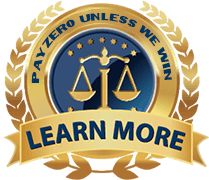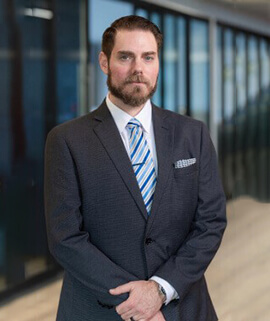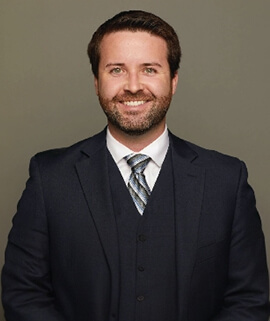Automatic Sliding Door Injury Attorney
 When people enter their local 7-11, Albertsons, or Macys Department store, hardly ever do they expect to be injured by the automatic sliding doors at the store’s entrance. Sliding doors for grocery stores, office buildings, malls, shopping centers, hospitals, schools, and clothing stores can pose a particular hazard to patrons and potential customers. They often work autonomously, opening in response to someone approaching the door’s sensor. However, when there is a malfunction or defect in the automatic door sensor, or if the sliding door isn’t properly maintained by the property owner, the patron or customer can experience injuries that can result in damages that can be incredibly difficult to recover from fully.
If you have been injured by an automatic sliding door, as a result of the negligence or misconduct of a store owner or sliding door manufacturer you have every right to file a lawsuit against the party responsible for the damages. When filing a lawsuit, it is in your best interest to seek representation from an expert lawyer experienced in handling cases of this nature. At Downtown L.A Law Firm our experienced Los Angeles attorneys can guide you through the often arduous process of building your case, filing your claim, and collecting compensation for your damages. If you have any questions after reading this article, please feel free to reach out to our Los Angeles law firm for a free consultation by one of our top-rated legal advisors.
When people enter their local 7-11, Albertsons, or Macys Department store, hardly ever do they expect to be injured by the automatic sliding doors at the store’s entrance. Sliding doors for grocery stores, office buildings, malls, shopping centers, hospitals, schools, and clothing stores can pose a particular hazard to patrons and potential customers. They often work autonomously, opening in response to someone approaching the door’s sensor. However, when there is a malfunction or defect in the automatic door sensor, or if the sliding door isn’t properly maintained by the property owner, the patron or customer can experience injuries that can result in damages that can be incredibly difficult to recover from fully.
If you have been injured by an automatic sliding door, as a result of the negligence or misconduct of a store owner or sliding door manufacturer you have every right to file a lawsuit against the party responsible for the damages. When filing a lawsuit, it is in your best interest to seek representation from an expert lawyer experienced in handling cases of this nature. At Downtown L.A Law Firm our experienced Los Angeles attorneys can guide you through the often arduous process of building your case, filing your claim, and collecting compensation for your damages. If you have any questions after reading this article, please feel free to reach out to our Los Angeles law firm for a free consultation by one of our top-rated legal advisors.
Learn more about your legal options: call (855) 339-8879 to speak with a representative now.
Premises Liability & The Process of Filing A Lawsuit
All property owners are expected to uphold the reasonable safety and security of their patrons, visitors, and customers while on their property. Under Premises Liability law, if someone injures themselves on someone else’s property as a result of the property owner’s failure to properly fix hazards or warn their patrons of said hazard, the property owner is to be held liable for the damages the injured patron have endured. Regarding being injured by an automatic sliding door, it is the property owner’s responsibility to ensure the sliding door is properly maintained. They are also expected to warn patrons of the potential hazard within a reasonable amount of time. When filing an automatic door accident lawsuit against a property owner, it is incredibly important that you collect all the evidence you can immediately after the incident takes place. This evidence can include photographs, video footage, eyewitness accounts, medical bills or records, and police reports. It is also important that you report the incident to a property owner or staff right after the incident takes place. The longer you wait to collect proper evidence, the more likely a property owner will dispute your case in court. Proving negligence of the property owner’s expectation to maintain the premises is also required of having a satisfactory outcome to your lawsuit. To successfully establish negligence you must be able to show that the following is evident in your case:- Duty: The plaintiff (injured or damaged party) must be able to show that the defendant (mobile home park owner) owed a legal duty to the plaintiff under the particular circumstances of the case.
- Breach: The plaintiff must be able to show that the defendant breached said legal duty through specific actions or failure to act appropriately
- Causation: The plaintiff must be able to show that the defendant’s actions or lack thereof caused the plaintiff’s injuries
- Damages: The plaintiff must be able to show that they endured some specific damages. This can usually be shown through the presentation of medical records, a loss of wages, or a loss of potential income.
Headline
$500,000
$600,000
$599,000
$420,000
$460,000
$360,000
$300,000
$310,000
Automatic Sliding Door Defects & Product Liability
In some cases, liability for automatic sliding door accidents doesn’t always fall on the property or store owner. Like all products, automatic sliding doors can be manufactured with defects that result in causing injury to the patrons or customers of the store. In this case, the manufacturer of the automatic sliding door would be found liable for the resulting damages. Under product liability laws, companies are expected to provide consumers with products that are safe, however, when a product causes injury said the consumer has every right to retain an experienced lawyer to help them sue the company for damages. However, when filing a product liability lawsuit, it is necessary that you can identify what company was responsible for the product defect. In most cases, some companies help move a product from the design floor to the retail store, and any one of these companies can be held completely liable for the damages. Listed below are the three common areas where a product defect typically occurs:
- Design Defects: These are the defects that can occur before the product is sent to the assembly line. The defects that occur in this stage of production are faults that make the product inherently dangerous. In most cases, these defects can lead to full-scale product recalls, and the company which organized the design of the product could be held liable for the damages.
- Manufacturing Defects: These defects typically occur on the assembly line of the product. They can range from minor mistakes along the manufacturing chain to reoccurring errors that can result in large recalls. In these instances, the manufacturing company could be deemed responsible for the damages.
- Marketing Defects: These defects occur during the marketing of a specific product. These defects include things like improper labeling, insufficient instructions, or inadequate safety warnings.
Regardless of where the defect occurred, it is highly recommended that you seek representation from a qualified attorney with experience in handling automatic sliding door defect lawsuits.
Complete a Free Case Evaluation form or call (855) 339-8879 today.
How Downtown L.A Law Firm Can Help
At Downtown L.A Law Firm, our Los Angeles attorneys can help you sue for the injuries caused by an automatic sliding door. Clients who file a claim with our attorneys in Los Angeles can find some if not all of the following damages compensable to them:
- Past and Future Medical Expenses
- Loss of Income
- Loss of potential future income
- Emotional Damages (anxiety, depression, PTSD, etc…)
- Punitive Damages
Being injured by a sliding door can be incredibly damaging, and there is no reason you should face a company or property owner alone. Fortunately, our Los Angeles attorneys have expertise in fighting companies and property owners for allowing their automatic sliding doors to cause injury to others. While our law firm is based in Los Angeles, California, our lawyers not only practice in Los Angeles, but San Diego, Orange County, Riverside, San Francisco, Fresno, Sacramento, and the entire state of California as well.
Free Second Opinions
Other attorneys will sign you up to their firm but will disappear once your name is on the paper as they are busy signing up more cases. In these instances, their business is based more on volume and will attempt to sign up as many cases as possible. In turn, they will spend less time on cases resulting in severely reduced settlements. Our firm will not treat you like a number. We will be in communication with you throughout our lawsuit and will treat you like family. So if you already have an attorney don’t worry, we’ll give you a second review of your case 100% free of charge.Zero Fee Guarantee-No Upfront Fees Ever
If you contact our law offices today, we can walk you through the complicated process of filing your claim completely free of charge. As a show this commitment to you and your case we offer our clients the benefits of a zero fee guarantee policy. Under our zero fee policy, all clients don’t pay for our services until their case is won. If you feel in need of a second opinion, second opinion case reviews are also free under this policy. Please, feel free to give us a call, and we can guide you down the path of receiving proper compensation for your damages.Over $1 BILLION Recovered
for Our Clients
By submitting this form, you agree to receive telephone calls and text messages at anytime, which include hours outside of business hours (8:00 am PST – 9:00 pm PST). This is so that we may reach you as soon as possible in order to consult on your potential case.
Featured Lawyers
Personal Injury
– Santa Clarita Personal Injury Lawyers
– Santa Barbara Personal Injury Attorneys
– Santa Maria Personal Injury Attorneys
– Redondo Beach Personal Injury Attorneys
– Rialto Personal Injury Attorneys
– San Marcos personal injury attorneys
– Rancho Cucamonga Personal Injury Lawyers
– Pomona Personal Injury Attorneys
– Redlands Personal Injury Lawyers
– Ontario personal injury lawyers
– Lake Elsinore Personal Injury Attorneys
– La Habra Personal Injury Lawyers
– Lakewood Personal Injury Lawyers
– Indio personal injury lawyers
– Irvine personal injury attorneys
– Glendale personal injury attorneys
– Highland personal injury attorneys
– Huntington Park personal injury lawyers
– Corona personal injury lawyers
– El Cajon personal injury attorneys
– Costa Mesa personal injury attorneys
– Compton personal injury lawyers
– Chino Personal Injury Attorneys
– Chula Vista Personal Injury Attorneys
– Baldwin Park Personal Injury Attorneys
– Bellflower Personal Injury Lawyers
– Anaheim personal injury lawyers
– Prisoner Personal Injury Attorney










